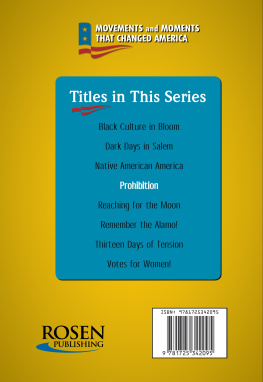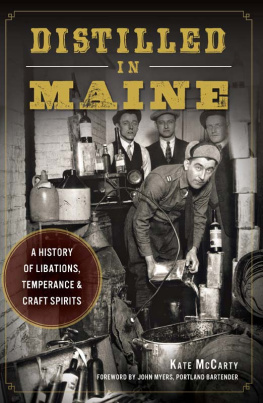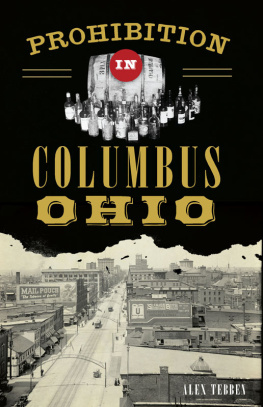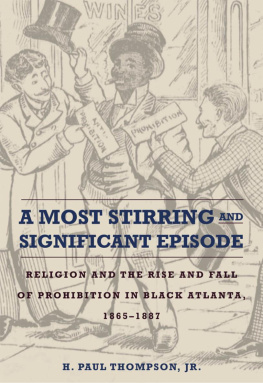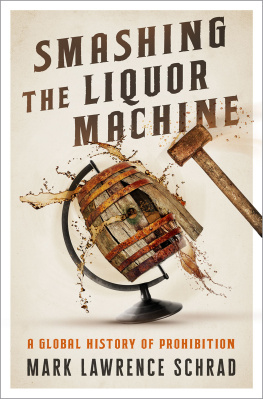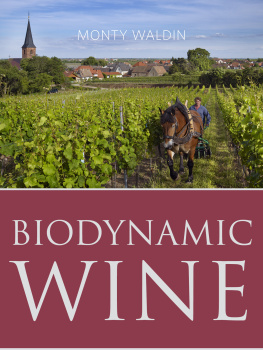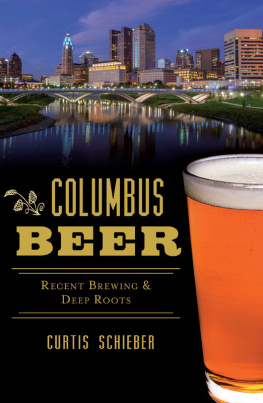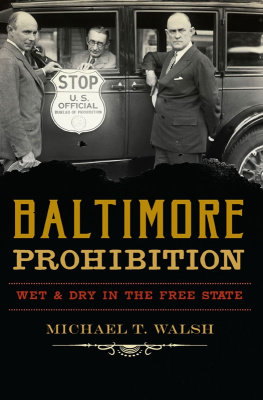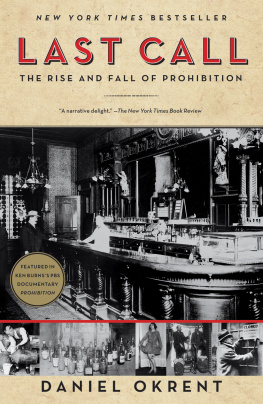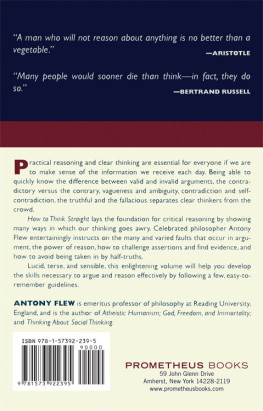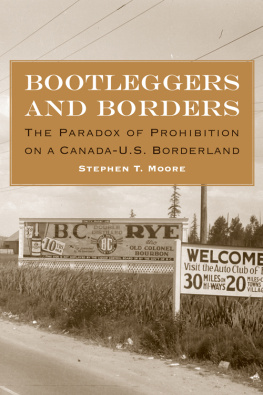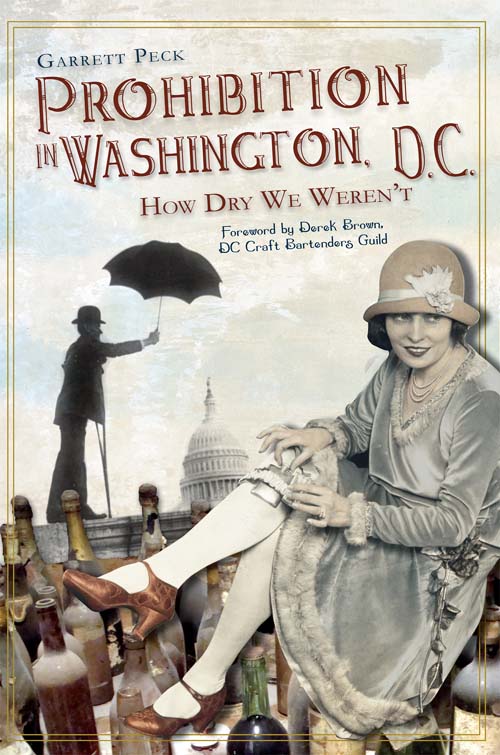P ROHIBITION
IN W ASHINGTON, D.C.
H OW D RY W E W ERENT
G ARRETT P ECK

Published by The History Press
Charleston, SC 29403
www.historypress.net
Copyright 2011 by Garrett Peck
All rights reserved
First published 2011
e-book edition 2011
ISBN 978.1.61423.089.2
Library of Congress Cataloging-in-Publication Data
Peck, Garrett.
Prohibition in Washington, D.C. : how dry we werent / Garrett Peck.
p. cm.
Includes bibliographical references and index.
print edition ISBN 978-1-60949-236-6
1. Prohibition--Washington (D.C.)--History. 2. Drinking of alcoholic beverages--Washington (D.C.)--History--20th century. 3. Washington (D.C.)--History--20th century. 4. Washington (D.C.)--Social conditions--20th century 5. Historic sites--Washington (D.C.) 6.
Cocktails--Washington (D.C.) I. Title.
HV5090.D6P43 2011
363.4109753--dc22
2011002399
Notice: The information in this book is true and complete to the best of our knowledge. It is offered without guarantee on the part of the author or The History Press. The author and The History Press disclaim all liability in connection with the use of this book.
All rights reserved. No part of this book may be reproduced or transmitted in any form whatsoever without prior written permission from the publisher except in the case of brief quotations embodied in critical articles and reviews.
To temperance! Ill drink to that.
Cogswell Society toast
C ONTENTS
F OREWORD
When I first began bartending, it had never occurred to me that my job was once illegal and that bartenders like myself had been forced out of work. Of the 3,000 bartenders employed in Washington, D.C., before the Prohibition era, 1,800 of whom belonged to the bartenders union, none remained behind the stick when prohibition became the law. The great barmen of the time moved to other countries or took jobs doing anything else. These journeymen, who had plied their trade with enthusiasm and pride, were reduced to outlaws if they continued their practice.
On September 16, 1928, John J. Daly, writing for the Washington Post, put it more plainly:
There areofficiallyno bartenders in America.
There are no bars.
All that remain are memories.
Well, it turns out that this was only partly true. As Garrett Peck will tell you, Washington, D.C., never really went dry, as speakeasies were plentiful. Drinking never really ended either, but bartending as a craft did. Bartending was subsumed into the new fervor for drinking highballs and rotgut, while the great punches, fizzes and Rickeys of the past were nearly forgotten. The golden age of bartending was over. Amateur bartenders replaced the professionals, and many of the techniques, styles and recipes that emanated from an era of great creativity were lost. These were sad times for drinkers, indeed.
Fortunately, bartending has since recoveredsome seventy years afterand even blossomed due to the efforts of pioneering individuals reclaiming recipes from old bartending manuals and using fresh juices instead of syrups from a soda gun, inspiring a new generation of bartenders to take their profession seriously. It is a great time to be a bartender and, by proxy, a drinker. One bartender dubbed the present as the platinum era in bartending.
Of course, locally we have seen a renaissance, too. In 2007, the DC Craft Bartenders Guild was founded by ten of the citys top bartenders to promote the profession. Since then, the district has added a cadre of young, well-informed mixologists to its roster and become a world-class cocktail city, with some of the most renowned bars in the United States. This is not to say that great bartenders were not always in Washington, but now the city is awash with talent.
The stigma of a stiff drink has also given way to a celebration of the craft with the DC Craft Bartenders Guilds annual Repeal Day Ball. Every year since 2008, the seventy-fifth anniversary of the repeal of prohibition, the guild holds a black tie ball in celebration with toasts, dancing and, of course, great cocktails. The party has become a grand event and continues to grow with local bartenders, national bartending legends and hundreds of guests. It is truly inspiring to see the bartending renaissance in full bloom and to know that we have come so far from the days when the craft nearly came to an end.
Derek Brown
DC Craft Bartenders Guild
Columbia Room
P REFACE
The nations capital has been a drinking city since its founding in 1791. Washingtonians have a culture for cocktails and happy hours. We network with a rsum in one hand and a beer in the other. We enjoy dining out and pairing good wine with good food. Drinking is a crucial part of how we socialize and entertain. Journalist Walter Liggett wrote in 1929: From its very inception the nations capital has been known as a hard-drinking citydoubtless because of the prevalence of politicians.
Not everyone agreed that this was a good thing. The temperance movement launched a culture war that demonized alcohol and succeeded in changing the U.S. Constitution in 1920 to make alcohol illegal. The country changed the Constitution back less than fourteen years later after the noble experiment of prohibition failed.
Washington was to be the model city for the dry cause. Temperance advocates were eager to demonstrate that dry law could work nationally, and they used the national capital as a proving ground. The problem was that Washingtonians didnt want to go dryand never would go dry.
Prohibition came early to Washington. It started on November 1, 1917more than two years before the nation officially went dryand ended on March 1, 1934. This book deals with what actually happened in the nations capital during the sixteen years and four months of prohibition in the city.
The book is an outgrowth from a voluntary tour that I lead called the Temperance Tour. I created this in May 2006 as I was researching my first book, The Prohibition Hangover. My friend Amy Saidman asked if I could put together a Prohibition-oriented excursion for the Close Up Foundation, a nonprofit that brings civics teachers to Washington for experiential learning. The day of the first tour coincided with the opening of the new Woodrow Wilson Bridge over the Potomac River, which is part of the Beltway. The first car over the bridge was Wilsons 1923 Rolls Royce. Just as my tour arrived at the Woodrow Wilson House that afternoon, the car coincidentally drove up, carried on a flatbed truck. The teachers ooohed and ahhhhed over the car. That lovely Rolls Royce was on loan to the house for several years; however, once the cars owner died, the estate reclaimed it.
According to the 1920 U.S. Census, Washington, D.C., had 437,571 people. The population had ballooned by 100,000 people during World War I, causing housing shortages and interracial tension that exploded into a four-day race riot on the eve of prohibition. The city was far more densely packed than it is todaythe suburbs didnt exist yet, and the automobile was just coming into vogue (the district had fifty-six thousand cars in 1920, but a decade later that number had tripled). The car made the bootleggers job much easier in moving booze to market and providing a speedy getaway. Washington was a tightly compact city, one that you could walk acrossfrom Capitol Hill to Georgetown, from the Washington Navy Yard to Mount Pleasantin just a few hours. This density makes Prohibition-era Washington easy to explore.


